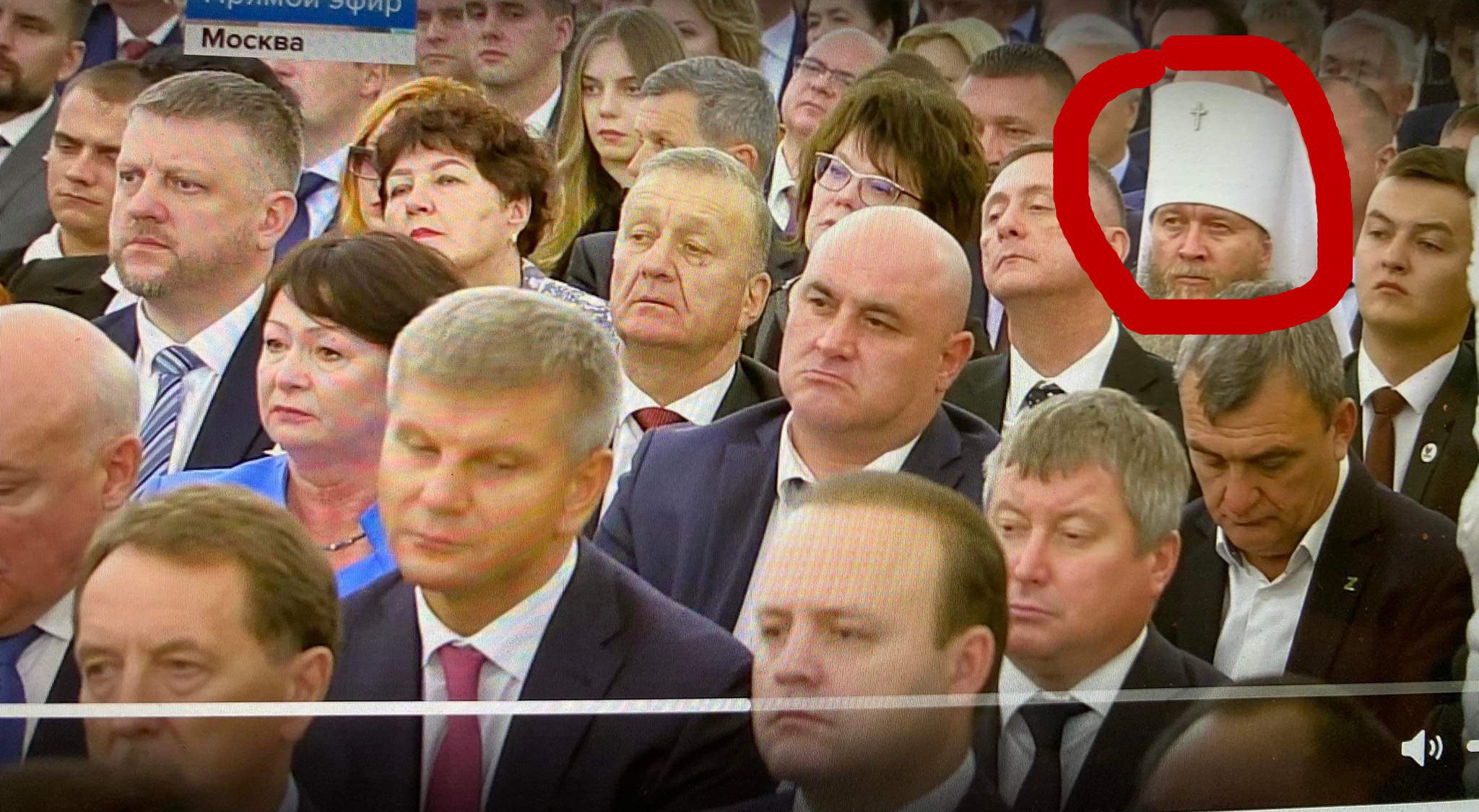
Do you remember the metropolitan of the Ukrainian Orthodox Church, which is supposedly no longer of the Moscow Patriarchate, sitting in the Kremlin at the ceremony of "adding new territories"?
It was Metropolitan Panteleymon (Povoroznyuk) of Luhansk and Alchevsk. Ilarion of Donetsk and Lazar of Crimea were invited, to be sure, but they were wise enough not to go. Moreover, even Patriarch Kirill decided on a no show, he sent his deputies (he did the same when Crimea was "annexed", by the way), but the "smart man" Povoroznyuk went there. For this, Ukraine later imposed sanctions against him (at that time, the sanctions list included Metropolitans Antoniy (Pakanych), Luka (Kovalenko), Meletiy (Yehorenko) and other "wonderful people" from the UOC-MP). At the same time, Panteleymon, unlike, say, Meletiy (Metropolitan of Chernivtsi), does not have a Russian passport. A paradox, isn't it? After all, Meletiy is the head of the Department of External Relations of the UOC (allegedly not of the MP), a kind of "church foreign ministry", and he should be able to travel the world, open laundromats, that is, excuse me, parishes, but he cannot cross the border. Because he is under sanctions and deprived of his citizenship, he can only travel one way, and he will not be allowed back, and they have every right to deport him.
But let's get back to Panteleymon. It would seem that everything is clear with him: he visited the Kremlin, serves in the occupied territories, is under sanctions, so he is an obvious collaborator. And there is nothing to talk about.
However, it turns out that it's not that simple.
Life is a complicated thing in general.
Because in occupied Luhansk Region, Panteleymon and his right-hand man, Metropolitan Nykodym (Baranovskyy) of Severodonetsk and Starobilsk, categorically do not want to come under the omophorion of Moscow (in direct subordination, that is). As all the Crimean parishes of the UOC-MP and the Diocese of Rovenky in Luhansk Region have already done (here the process was supervised by traitor Archbishop Arkadiy (Taranov), who later fled to the swamps and may now head a monastery in Moscow Region).
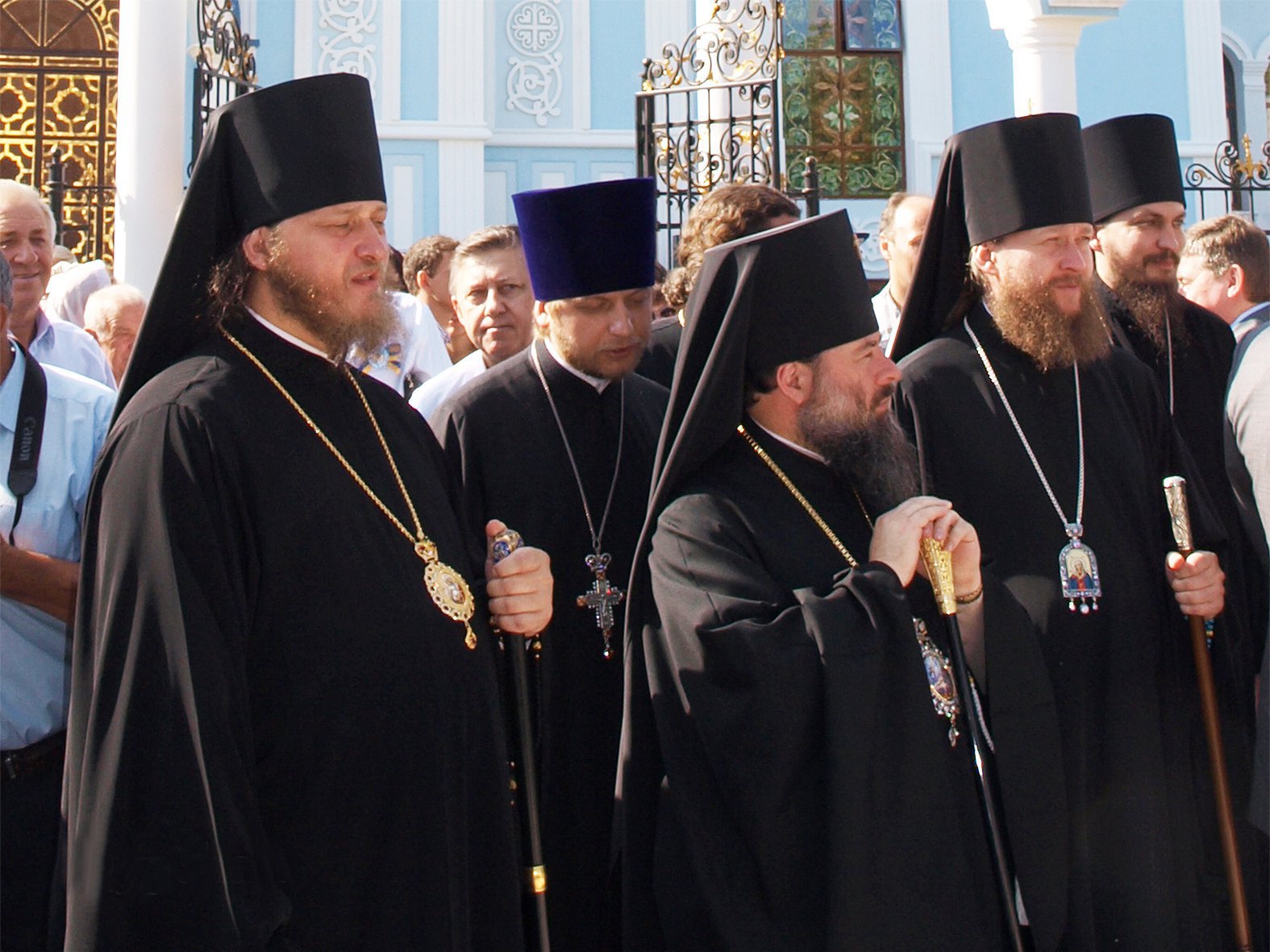
They neither take passports nor want to transfer – they are just refusing to budge, and that's it. From the point of view of canon law, Panteleymon and Nykodym cannot be forced, and the occupiers understand this. They can only physically remove them.
There have already been similar precedents. Panteleymon became the head of the Luhansk see of the UOC-MP in 2021, after his predecessor, Mytrofan (Yurchuk), had his head crushed by the occupiers.
That is, according to the legend, 58-year-old Mytrofan died of a "heart attack," but medical records show the opposite. Mytrofan supported the "referendum", but he still wasn't "his own" enough.
However, the physical removal of Panteleymon and Nykodym will not solve the problem of "loyalty" of the church in Luhansk Region to the occupiers. Because formally, the Luhansk see will remain with Kyiv, Onufriy will appoint whomever he wants. So, they are trying to "break" these two. The relevant services of the occupying "administration" report to Moscow – their reports have been obtained by LB.ua.
So, what's going on there? Have Panteleymon and Nykodym "come to their senses" and are "rooting for Ukraine" (looks suspicious, doesn't it?)? Or are they just playing their own murky game?
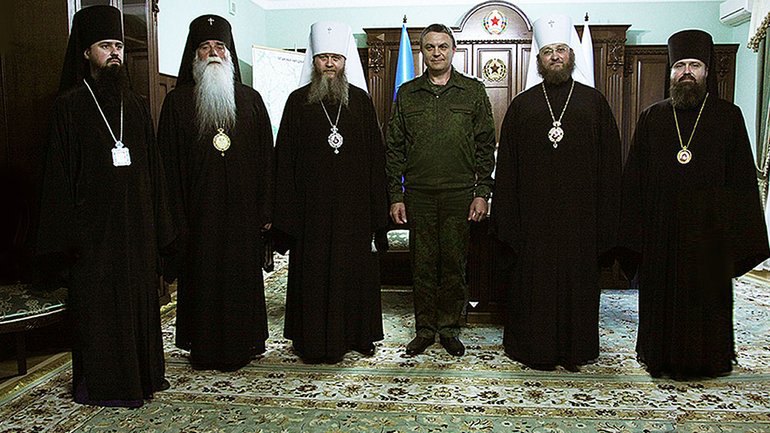
Let's get into the details.
***
"Formation of a centre of social tension" – that is how the occupiers call the religious situation in Luhansk Region in their reports.
There are two main problems.
The first is personnel. There are collaborating priests, but there are far fewer of them than those who are trying to "remain neutral" or even "support Ukraine". An important emphasis: in the understanding of the occupiers, "supporting Ukraine" does not mean singing the anthem or going to rallies, but simply not asking for a transfer under Gundyaev's omophorion and not taking Russian passports (although one village priest is so brave that he posts anti-Russian videos on YouTube almost every day).
A small example. Do you remember the fat-faced traitor priest from Severodonetsk who was caught by our forces, convicted of treason, and then exchanged? Prigozhin came to meet him in the swamps [Russia]. So, this "Father Andriy" is sure that he was detained because of his former colleagues from the Severodonetsk diocese, whom he is now setting the Russians against (I have their names, but I will not mention them so as not to harm them even more).
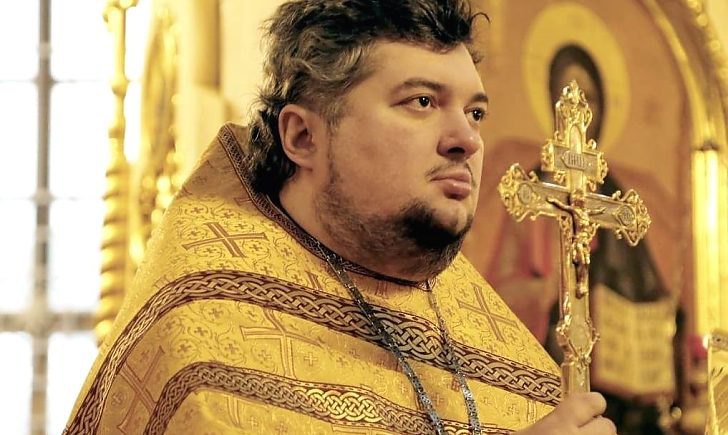
The second is money. "Under the influence of Kyiv, the leaders of Orthodox religious organizations in the LPR do not register in the republic. Thus, more than 230 Orthodox parishes of the LPR have no legal grounds to operate in the republic, as they are foreign legal entities registered in Ukraine," the report said.
I will translate it into human language: as many as 230 parishes do not pay taxes to Moscow. Yes, in case you didn't know, Ukrainian parishes have never paid anything to Moscow. This is stipulated by the famous charter of 1990, to which the UOC-MP constantly refers when talking about its "independence." The charter, of course, does not grant any "independence", but it does grant broad rights in matters of church self-government. And the right not to pay, too.
It would seem the UOC-MP is a canonical part of the Russian Orthodox Church. In fact, we are talking about the same church. So why are the occupiers so nervous?
Usually, in normal, healthy societies, religious leaders do not have such an influence on political processes.
I emphasize: in normal, healthy societies and under normal circumstances. But the groups of the population remaining in occupied Luhansk Region are not the most progressive. Most of them are elderly people with very modest incomes who are "satisfied with everything". These people are very much oriented towards their "priest" and are even more fond of religious mysticism. Therefore, the occupiers need "tame priests" to maximize their influence on the locals.
And the main thing is to demonstrate "results" for Moscow.
How do the occupiers explain Panteleymon and Nykodym's reluctance to cooperate?
On a personal note, the former baptized the children of former SBU chief Ivan Bakanov, and the latter has a brother who works for the SBU.
The occupiers think that they are "afraid of the Kyiv authorities". Yes, they are, but they are afraid of the church, not the secular authorities. Make a mental note.
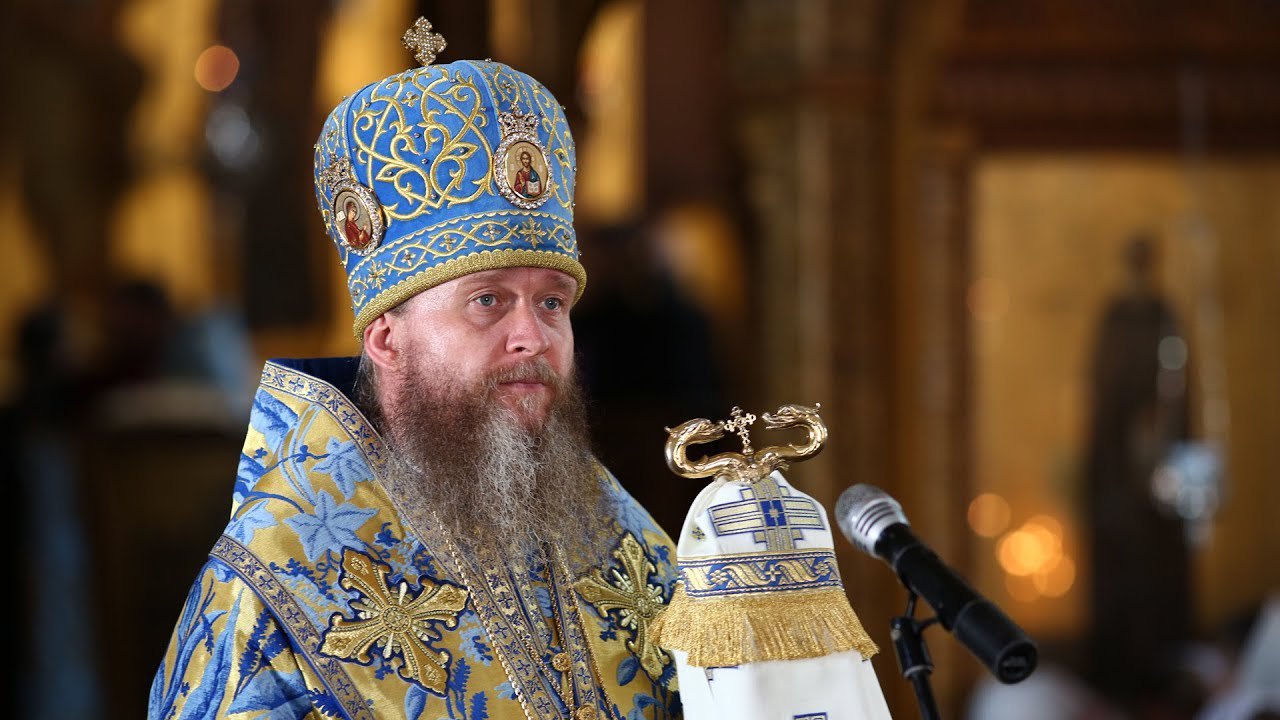
It's simple: first, the head of the UOC-MP, Onufriy, did not publicly condemn Panteleymon's visit to the Kremlin, did not ban him from ministry, did not remove him from the pulpit, did not do anything. In fact, he did not react at all. That is, for the UOC-MP, Panteleymon is and will obviously continue to be the legitimate head of the Luhansk see. In the current circumstances, you will agree, this is a lot.
Secondly, Ukraine will liberate Luhansk Region – everyone understands this. So why burn their bridges now?
Thirdly, for the UOC-MP, Panteleymon is a respected person, while for the ROC he is just another Ukrainian priest-traitor, albeit a metropolitan.
The bottom line is that neither Panteleymon nor Nykodym has much reason to completely "lie down" under the invaders. One of them has already gone to the Kremlin, and that's enough.
***
The main fight is now taking place around St. Nicholas Cathedral in the town of Kadiyivka (formerly Stakhanov). It was here that Sergei Shoigu was once baptized (by his grandparents in secret from his parents). And you know how Russians love damn symbolism.
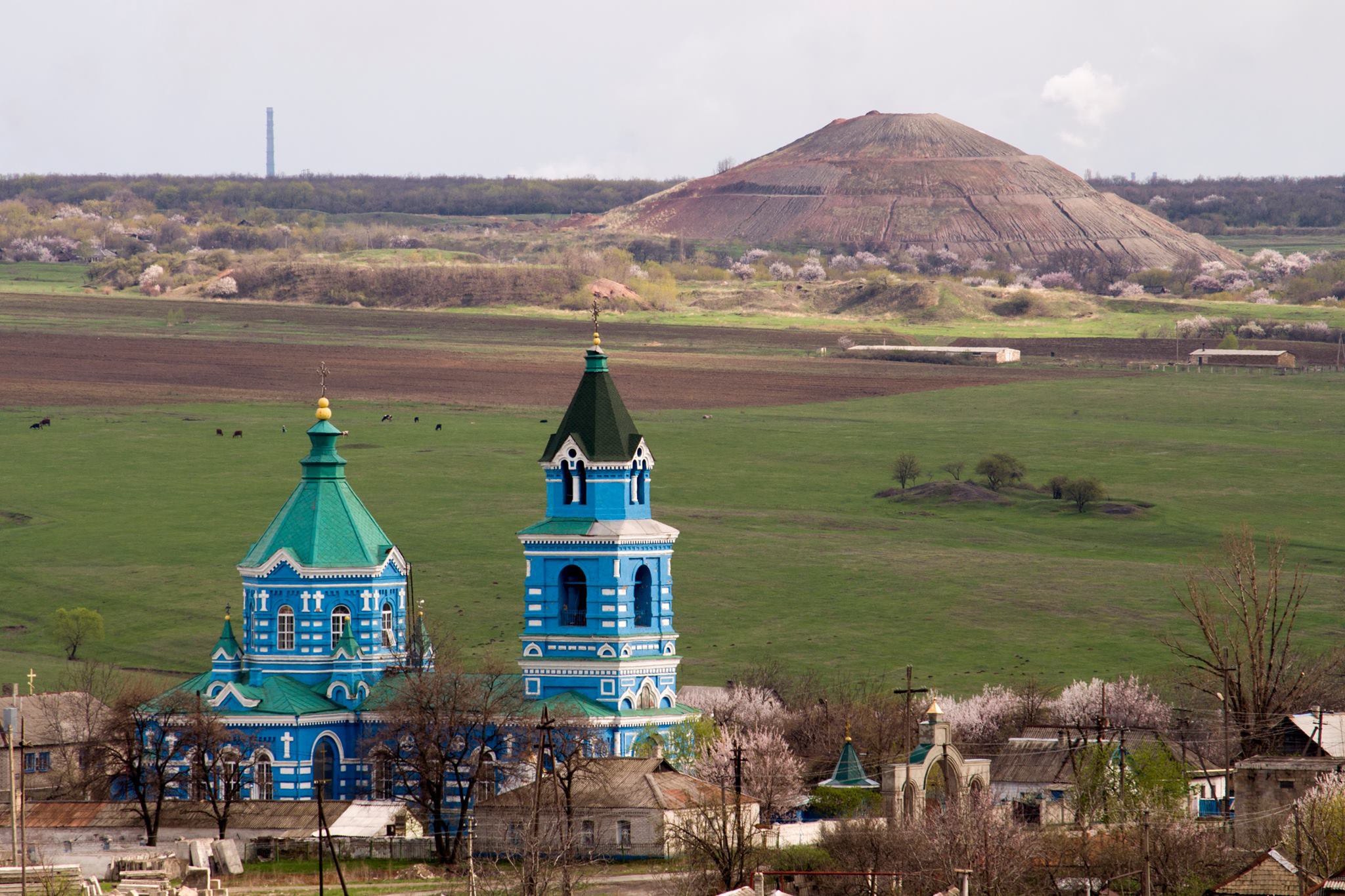
The rector of the cathedral, Father Dionisiy (Tyvyakov), was very, very pro-Russian. Last November, he went to a Kobzon concert [euphemism for "died"]. Ironically, he was sent there by a shell-shocked Russian soldier (this information is preliminary and needs to be clarified). The "head" of the so-called LPR Pasichnyk met Metropolitan Nykodym on this occasion (at the same time he was being "processed" by the military) and asked him to appoint the "right person" – Father Heorhiy (Dubovyk) – as the new rector.
However, Nykodym refused to budge and, using his legitimate church authority, appointed a pro-Ukrainian priest, Rudenko. According to the occupiers' reports, "outraged parishioners" did not allow him to enter the church. Moreover, they sent a "request" to Patriarch Kirill to grant the "Shoigu Cathedral" the status of a "patriarchal metochion".
Since the idea was clearly planted by the occupiers (whether they were actual members of the parish of this particular church or just some "dressed up" people, it is easy to check by checking the signatures in the sheets), they did it, as the classic said, "in a stupid way". Because in this particular case, from the canonical point of view, we can talk about stauropegion, and not about a "metochion". To explain it very briefly and in easy terms, in the Orthodox tradition, a "metochion" is part of something larger. For example, there is the Xenophontos Monastery on Mount Athos, and in Athens it has a "metochion". By itself, a "metochion" cannot be an autonomous, independent unit within some other diocese. But a stauropegion that is directly subordinate to the patriarch (in this case, Kirill) can.
Today in Ukraine there is only one stauropegion nunnery that is directly subordinate to Patriarch Kirill, the Korets Monastery.
The story of his transfer is a long one. If you remember, I wrote that in the late 1980s, its erstwhile rector, Natalya, had a big fight with Filaret's wife, Yevheniya Petrivna (only I beg you, don't roll your eyes and pretend that you didn't know that Filaret had a wife. As he himself always responded to reproaches like "you have a woman in your house!" "Yes, I have a woman in my house, but you have a boy in your bed." He would get up and walk away with dignity). The fight was so bad that Natalya requested a transfer under the omophorion of Moscow (Filaret was then the head of the Kyiv See). And so it happened. Onufriy would like to do something about it today, but he cannot.
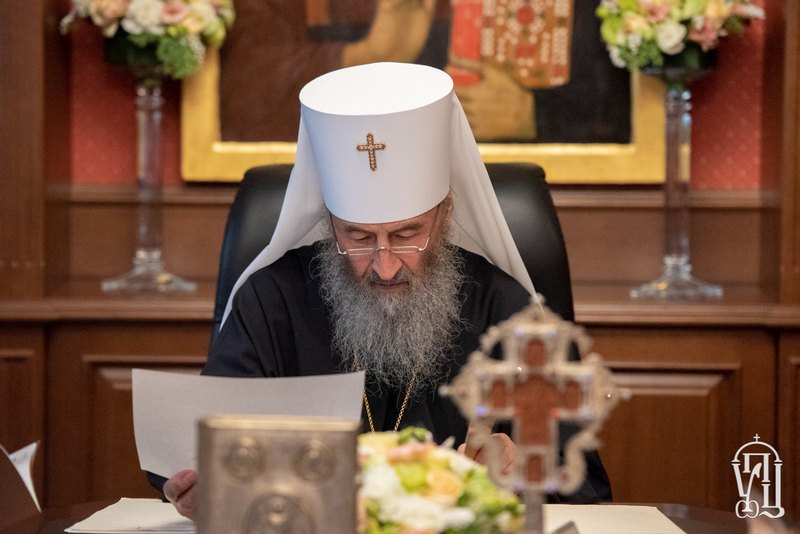
So, there is no doubt that Moscow will be able to seize the "Shoigu cathedral". And Kyiv will not say a word about it. After all, if the UOC-MP did not fight for its Crimean parishes, then what is there to talk about?
***
According to the law of the genre, a "good Russian" appears in our story. That is, I'm sorry, the abbot of the Holy Ascension Monastery, the only one of its kind in the "republic", Ioann (Sukhyna).
Holy Ascension is a good provincial monastery. It is small; not rich, but with its own faithful and even its own "saint". Well, he is not really a saint, he is not canonized; rather, he is a local curiosity, Elder Pylyp of Luhansk.
I'm sorry for the cynicism, but the set is exactly what it should be for the Luhansk audience.
Sukhyna's interest is very simple. Above all, he dreams of becoming a bishop. For which he made efforts during the life of the late Volodymyr (Sabodan). Because he is quite a peculiar person, and his monastery is too much imbued with male passions (well, you get the idea), he was left on the sidelines. Even a visit to the Russian State Duma shortly after the start of the full-scale invasion did not help.
And now it's golden times!
On Wednesday, 15 February, Orthodox Christians will celebrate the Presentation of the Lord. By this date, it is planned to bring some "very exclusive" relics to the monastery. For example, Sergius of Radonezh. The relics of the main Russian saint are kept in the Trinity Lavra of St. Sergius and almost never leave it, but there are many "particles" scattered around the world, which makes the task easier. It is even possible to leave the holy relics in Luhansk Region "until the completion of the special military operation". Of course, with the proviso that the Russians will lose the war and the relics will definitely remain with us.
The bet is on the aforementioned mysticism of the local public.
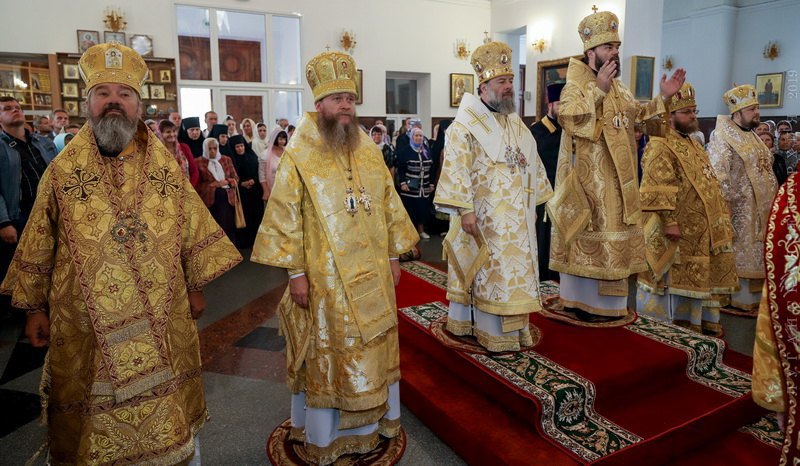
But in general, the church situation in Luhansk Region is absolutely clear. Let's go through the main points:
- The occupiers badly want to take away parishes from the UOC-MP in favour of the ROC. Moscow will pat them on the head for this;
- The local UOC-MP wildly hates the OCU, but is not ready to "lie down" under the ROC. Even though Panteleymon went to the Kremlin for the ceremony. Because in Ukraine they are respectable people, but in the swamps [Russia] they are just traitorous priests;
- The top clergy of the UOC-MP in Kyiv quietly pretends not to notice anything. Local amnesia;
- Luhansk priests of the UOC-MP are mostly (not all, but mostly) pro-Ukrainian. Not because they are so patriotic, but because they simply understand which way the wind is blowing.
We will need to deal with all this after the Victory.








